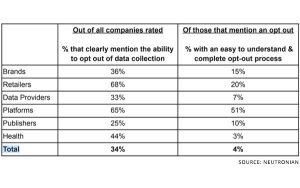— September 8, 2017

Free-Photos / Pixabay
Forrester Research’s new report, “The Forrester Wave™: B2B Commerce Suites For Midsize Organizations, Q3 2017”, explores the commerce needs of midsize B2B companies and evaluates B2B commerce suite providers.
What This Means for B2B Merchants
“We’re seeing a wave of global demand as more B2B companies adopt digital strategies driven by the desire to meet heightened client expectations and the need to differentiate through personalized, self-service experiences across multiple channels,” said Mark Lavelle, CEO of Magento Commerce.
Forrester’s research supports this, noting that B2B companies are finding that their customers now expect the same seamless buying experiences that B2C offers, as well as expanded inventory fulfillment options and assisted sales alternatives. They recommend that B2B companies look for commerce solutions that support the following four key capabilities to stay competitive, and even expand into selling directly to their end consumers:
1. Full-Spectrum Selling
B2B buyer preferences are changing and they want both self-service and full-service purchasing options. According to Forrester and Internet Retailer B2B Buyer research, 53% of these buyers will make half or more of their work purchases online by 2018 and 74% say buying from a website is more convenient. This means they’re looking for self-service buying tools that enable them to purchase 24×7, track new orders, view their order history, and manage their credit without having to talk to a sales rep (60% said they’d prefer not to speak with a sales rep). However, when they do want to speak with sales, reps will need assisted selling capabilities so they can deliver high-touch service. These capabilities include creating orders for customers, recommending products, quickly responding to quote requests, and troubleshooting issues with orders started online.
2. Personalized Digital Commerce Experiences
Personalization is key to driving sales and enhancing the shopping experience, even for B2B. B2B companies need to be able to run targeted promotions and make personalized product recommendations for different customer groups. And to ensure a seamless experience across channels, they must be able to provide custom catalogs and pricing to individual customers or groups of customers so they see their negotiated products and pricing online. B2B companies should also be able to prepare for these campaigns with tools to easily stage, preview and schedule product, pricing, content, and promotional updates.
3. Data-Driven Merchant Tools
To meet rising expectations, B2B companies need tools to access and analyze data for better decision making, greater personalization, and automation. According to a report from Teradata, 87% of marketers consider data their most underutilized asset, and 60% of them cite the ability to make faster decisions as the key benefit. B2B companies should have access to dashboards and easy-to-use business intelligence tools that non-technical team members can easily use, customize, and understand. This will give them the ability to integrate data from multiple sources (ERP system, Google Analytics, Magento, etc.) and from multiple channels to get a complete picture of their business. With this comprehensive view, they can easily share insights with colleagues for more data-driven decision making and deeper understanding of their customers and business.
4. Agility and Faster Time-To-Market
Years-long implementations are no longer acceptable. Commerce solutions must be cloud-based and flexible to meet rapidly changing needs and to accommodate new innovations. Built-in flexibility enables merchants to not only support multiple B2B selling models with native functionality, but also allows them to sell to both businesses and consumers from the same platform. Flexibility will also help B2B merchants easily expand to new markets with the ability to support multiple sites, languages, currencies, and tax policies out-of-the-box, and easily integrate technologies to enhance their core eCommerce platform as new solutions emerge.
Shannon Hane, product marketing director at Magento, also contributed to this post.
Digital & Social Articles on Business 2 Community
(75)
Report Post








